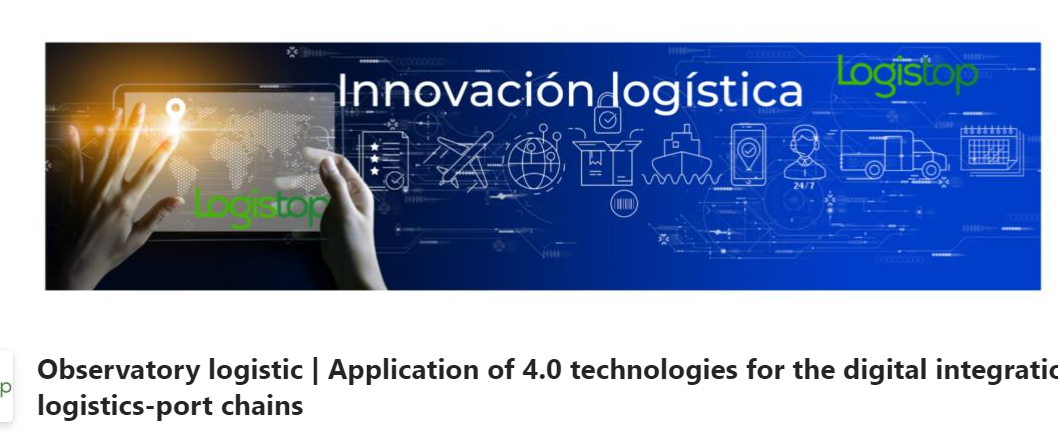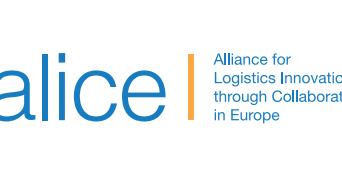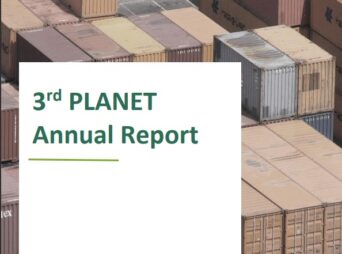Logistop is a multidisciplinary and inter-territorial working space in the logistics innovation arena formed by all the actors involved in the supply chain, as well as universities, technology centres, associations and specialised consultancy firms.
The objective of the Observatory logistic | Application of 4.0 technologies for the digital integration of logistics-port chains that took place the 18th April 2023 was to present practical examples taking into account the latest innovations available based on the use of 4.0 technologies, which currently allow progress towards the integration and efficiency of logistics-port chains.
The topics that we was addressed in this session were:
- Use and application of blockchain networks.
- Design of decision algorithms for the optimization of maritime transport upon arrival at port.
- Design of decision algorithms based on AI for the optimization of the distribution of goods to the port hinterland.
- Application of simulation models for last-mile distribution optimization.
For this, in this session presented by Tomás de la Vega, managing director of Logistop, and moderated by Alicia Enríquez Manilla, R+D+i technician – Researcher of Fundación Valenciaport, we had the following program, presenting 3 key solutions developed in the Living Lab 1 of the project:
- Blockchain technology and interoperability between corporate networks for port-hinterland data management, by Borja Sanz Gresa, R+D+i technician – digital transformation, Fundación Valenciaport.
- Optimization of the port hinterland through AI models and algorithms, by Jorge Feliu Escagüés, R+D+i technician, Fundación Valenciaport.
- PI node and collaborative urban logistics, by David Ciprés, head of research line, ITAINNOVA.
- Optimization of port operations in the water sheet from data digitized by AMURA solutions and shared from AURORA SmartPort Platform, by Coqui García, PhD, Chief Technology Innovation Officer, HIADES Business Patterns, SL, and associate professor of the Department of Mathematics, Statistics and Operations Research of the University of La Laguna.







